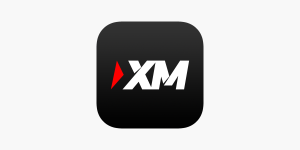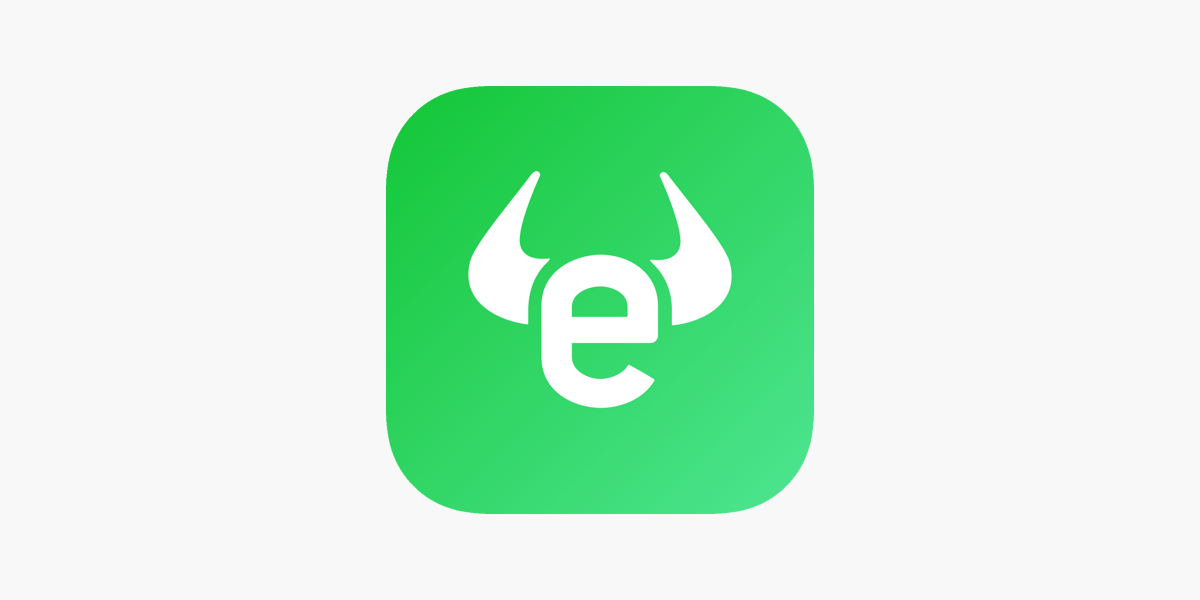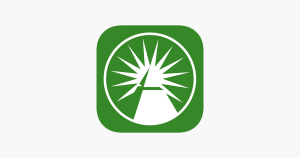
XM

eToro

Fidelity

Webull
Day trading apps have become a vital tool for investors looking to engage in the rapid buy-and-sell trading strategy that distinguishes day trading from other investment practices. These apps offer the convenience of executing trades, monitoring market trends in real-time, and accessing advanced analytical tools directly from a smartphone or tablet. They cater to the needs of investors who demand speed, flexibility, and up-to-date information to make informed decisions quickly.
Choosing the best day trading app depends on several factors, including the user’s experience level, the fees and commissions associated with trades, and the availability of educational resources to improve trading strategies. Apps like TD Ameritrade are known for their comprehensive features and advanced tools that may appeal to intermediate to advanced investors, while other platforms might be more suitable for beginners or those who prioritize user-friendly interfaces.
With the increasing number of apps available, investors have the flexibility to select platforms that align with their trading style and financial goals. Industry experts regularly evaluate these day trading platforms to guide users towards making the right choice, taking into account factors such as low commissions, technological sophistication, and customer service quality, which are crucial for the fast-paced nature of day trading.
Understanding Day Trading
Day trading involves a strategy where traders buy and sell financial instruments within the same trading day. The goal is to capitalize on short-term price movements to turn a profit before the market closes.
What Is Day Trading?
Day trading is the practice of buying and selling a security within a single trading day. Traders take advantage of small price moves and typically use high leverage to maximize potential gains. Day traders aim to close out all positions by the end of the trading session to avoid the risk of price gaps occurring overnight.
- Pattern Day Trader Rule: An individual who executes four or more day trades within five business days is labeled a pattern day trader and must maintain a minimum equity of $25,000 in their brokerage account.
Essential Day Trading Concepts
Understanding day trading requires knowledge of its key concepts, which include:
- Strategy: Every successful day trader relies on a well-tested trading strategy that includes predefined entry and exit points, and specific risk management techniques.
- Risks: Day trading carries higher risks than traditional investing. Market volatility can lead to substantial losses, especially when using leverage.
| Concept | Description |
|---|---|
| Leverage | Borrowing funds to increase potential returns. |
| Volatility | Price movements within the market. |
| Liquidity | The ability to quickly enter and exit positions. |
Day traders should always be aware of these concepts as they can significantly impact the success and sustainability of their trading activities.
Key Features of Day Trading Apps
When selecting the best day trading apps, traders prioritize platforms that provide real-time data, rapid order execution, comprehensive trading tools, and intuitive mobile app usability to inform and facilitate their trading strategy.
Real-Time Data and Charting
The lifeblood of any day trading app is its ability to deliver real-time data because day traders rely on immediate price movements to make quick decisions. Advanced charting capabilities allow users to visualize this data effectively, often providing a suite of technical indicators and analysis tools.
Order Execution Speed
Order execution speed is critical in day trading where seconds can make a significant difference in the outcome of a trade. The best trading platforms minimize latency, ensuring orders are conducted swiftly and at the desired prices, which can impact the trader’s profitability.
Trading Tools and Resources
Day trading apps typically offer an array of trading tools and resources such as live news feeds, alerts, and educational materials. These resources help traders to react to market changes swiftly and make informed decisions.
Mobile App Usability
The usability of a mobile app is a crucial factor in its effectiveness for day trading. A good mobile platform should provide a clear, intuitive interface with easy-to-use order placing systems, enabling traders to operate efficiently away from their desktop setups.
Top Day Trading Apps Reviewed
Choosing the right day trading app is crucial for investors looking to engage in rapid stock, options, ETFs, and futures trading. This selection covers the best platforms tailored for different trading needs, from robust analytical tools to user-friendly interfaces for beginners.
Interactive Brokers
Interactive Brokers stands out for its comprehensive Trader Workstation platform, which is highly tailored for advanced traders. It provides access to a wide array of markets, from stocks to forex, and includes sophisticated tools and functionality for options and futures trading.
TD Ameritrade
TD Ameritrade is renowned for stellar customer support and extensive resources, appealing to both intermediate and advanced investors. Its thinkorswim platform allows for trading a variety of assets including stocks, options, ETFs, and cryptocurrencies.
E*TRADE
E*TRADE is chosen for its user-friendly interface and robust tools. They excel in providing educational resources that benefit every trader level, while offering an advanced platform catering to options and stock trading.
Robinhood
Robinhood garners attention for its simple, intuitive design, making it a hit among younger investors. The app offers commission-free trades on stocks, options, ETFs, and cryptocurrencies, targeting novice to intermediate traders.
Webull
Webull provides a balance between user-friendliness and advanced features. Its offerings of commission-free trades extend to stocks, options, and ETFs, with added functionality for analyzing market trends.
TradeStation
TradeStation is another hub for seasoned investors with a penchant for technical analysis. It offers a plethora of charting and analysis tools for trading stocks, options, futures, and currencies.
Fidelity
Fidelity is known for its focus on long-term and retirement investors, but its trading platform is also equipped for day trading. It delivers a wealth of research and educational tools with a wide range of investment options.
Charles Schwab
Charles Schwab positions itself as a reliable full-service broker offering a diverse set of tools and investment choices for day traders. Their robust platform supports stocks, options, ETFs, and more advanced trading instruments.
eToro
eToro is popular for its social trading platform, letting users copy the trades of experienced investors. This feature, along with its capabilities for trading a variety of assets including cryptocurrencies, appeals to new and intermediate traders.
Moomoo
Moomoo is a newer entity in the day trading app space, offering advanced data analytics to help inform trading decisions. Their platform supports multifaceted stock and options trading operations.
Tastytrade
Tastytrade specializes in options trading, with a focus on education and empowering investors. It features comprehensive analysis tools to help traders make informed decisions in the options market.
Comparing Costs and Fees
When selecting a day trading app, investors should closely consider the structure of commissions and spreads, the details of margin rates and interest, and the policies regarding account minimums and service fees. Each factor can significantly impact the profitability and expenses associated with day trading activities.
Commissions and Spreads
Day trading apps often attract users with the promise of commission-free trades, but traders should read the fine print. Apps like TD Ameritrade and Interactive Brokers offer $0 commissions on stocks and ETFs. However, they may still charge spreads, which is the difference between the buy and sell price of a security. These spreads can vary widely between platforms and can impact overall trading costs as much as a traditional commission.
Examples:
- TD Ameritrade: $0 commission on stocks and ETFs.
- Interactive Brokers: Low spreads favored by active traders.
Margin Rates and Interest
For traders who wish to leverage their investments, understanding the margin rates and associated interest fees is crucial. Margin trading amplifies both potential gains and losses and involves borrowing money from the broker. The cost of borrowing — the margin rate — varies by broker. Interactive Brokers, known for catering to active and global traders, generally offers competitive margin rates, which can be appealing to experienced investors navigating diverse markets.
Examples:
- Interactive Brokers: Competitive margin rates for active traders.
Account Minimums and Service Fees
Many day trading platforms have moved to a $0 account minimum to lower the barriers to entry for new traders. Apps such as Robinhood and tastytrade appeal to beginners with their $0 account minimums and low service fees. In contrast, some platforms may charge monthly service fees or require a minimum account balance, which could deter smaller traders or those just starting out.
Examples:
- Robinhood: $0 account minimum, appealing for beginners.
- tastytrade: Low service fees for options trading.
Brokerage Accounts & Regulation
When engaging in day trading, investors should prioritize selecting a brokerage account with robust regulation to ensure security and compliance in their trading activities.
Choosing the Right Brokerage Account
Choosing the correct brokerage account is a crucial step for day traders. It is essential that investors consider the reputation and offerings of online brokers. Factors like trade execution speed, platform reliability, and commission fees should be critically evaluated. For instance, eToro and Interactive Brokers are highly rated for their day trading apps, indicating a high level of satisfaction with their account features. Additionally, access to premium research and innovative tools can significantly enhance trading efficiency.
Understanding Regulatory Environment
The regulatory environment governing brokerage accounts is critical for protecting investors. The Financial Industry Regulatory Authority (FINRA) plays a key role in oversight, ensuring that brokers and brokerage firms operate within the law and maintain fair practices. Day traders must understand that a broker regulated by FINRA is required to adhere to strict standards, which include investor protection and market integrity. Regulatory compliance not only legitimizes a broker but also provides a safety net for traders’ capital.
Strategies for Effective Day Trading
Effective day trading is a combination of sharp analytical skills, a well-crafted trading plan, and stringent risk management. These elements work together to form the foundation upon which successful day trading is built.
Technical Analysis and Indicators
In the realm of day trading, technical analysis is a pivotal tool, providing traders with a method to examine price patterns and market trends. Effective traders often utilize a range of indicators, such as moving averages and Bollinger Bands, to identify potential entry and exit points. For example, the moving average convergence divergence (MACD) is favored for its insight into market momentum and possible reversals. Coupled with drawing tools for trend lines and price channels, these indicators form an essential part of their strategy.
Risk Management Techniques
Risk management is the safeguarding barrier of the trader’s capital. It involves setting strict stop-loss orders and calculating acceptable risk-reward ratios for each trade. Some traders follow the ‘2% rule,’ which recommends never risking more than 2% of the account balance on a single trade. This methodology requires discipline and a neutral stance towards wins and losses to maintain a strategic approach to safeguard one’s investments.
Developing a Trading Plan
A well-defined trading plan is the blueprint of a trader’s daily activity. It outlines the asset classes one will trade, entry and exit points, timeframes, and even the market conditions under which they will trade. A trader’s plan is informed by thorough research and back-tested strategies to ensure it holds up against the volatility of the market. A robust plan also entails a clear outline of the trader’s investment goals and criteria for evaluating their performance.
Advanced Day Trading Tools
The arsenal of an efficient day trader includes specialized trading software and platforms equipped with an array of advanced order types and systems. These tools are pivotal in executing strategies with precision and speed.
Trading Software and Platforms
Advanced traders rely on high-quality trading software for real-time market data, speedy executions, and powerful technical indicators. Platforms like TradeStation cater to experienced traders with their in-depth charting tools and a vast selection of indicators. Similarly, sophisticated systems available through Interactive Brokers not only provide robust desktop applications but also feature highly-rated mobile apps for traders on the move.
- Real-Time Data: Crucial for informed decision-making, allowing prompt action on market movement.
- Speed & Execution: A delay of seconds can impact trade profitability, making fast order execution a must.
- Technical Indicators: Vital for analyzing trends and potential entry or exit points in the market.
Advanced Order Types and Systems
Effective risk management and strategy execution involve utilizing advanced order types. These include stop-loss orders, which protect against significant losses, and trailing stops that secure profits as prices move favorably. Conditional orders, like one-cancels-the-other (OCO), offer the ability to set multiple trade actions that depend on specific criteria being met. This level of control gives traders an edge in fast-paced markets.
- Stop-Loss Orders: Set a predetermined price to exit a losing trade and minimize losses.
- Trailing Stops: Automatically adjust the stop-loss level as the market moves in a trader’s favor.
- Conditional Orders: Plan for multiple scenarios and automate trade entries and exits.
By equipping themselves with these advanced tools, traders can enhance their trading performance, provided they have the knowledge to use them effectively.
Support and Education
When selecting the best day trading apps, traders should consider the level of customer service and the availability of educational resources. These elements are vital for both novice and experienced traders to navigate the markets effectively and make informed decisions.
Customer Service and Support
The customer service and support offered by a day trading platform can determine a trader’s ability to resolve issues swiftly. For instance, Interactive Brokers boasts a robust support system that traders can rely on for technical and account inquiries. Meanwhile, TD Ameritrade is known for providing comprehensive customer service, which includes phone, email, and live chat options to address the varied needs of its users.
Educational Resources and Training
Day trading platforms typically include an array of educational tools to enhance a trader’s knowledge and proficiency. Robinhood, geared towards beginners, provides an intuitive interface and basic tools to ease new traders into the world of day trading. Advanced platforms like TradeStation and Charles Schwab offer extensive materials, ranging from webinars to sophisticated analytical tools. These resources can prove invaluable for traders aiming to deepen their market understanding.
Many platforms also offer paper trading or a demo account feature, a simulation of trading with virtual money, which allows traders to practice and experiment with strategies without financial risk. E*TRADE and TD Ameritrade’s thinkorswim platform are prominent examples where users can benefit from paper trading, equipping them with hands-on experience in a risk-free environment before diving into real-world trading.
Portfolio Diversification Options
When it comes to day trading apps, investors should seek out features that allow for the management of a diversified portfolio. These apps should provide access to various investment options, and enable the user to spread risk across different asset classes.
Exploring Various Investment Options
Day trading apps can extend beyond typical stock offerings to include a spectrum of assets such as exchange-traded funds (ETFs), mutual funds, bonds, and even options for participating in hedge funds. Each investment type carries its own risk profile and performance patterns, aiding traders in tailoring their portfolios to their specific risk tolerance and investment goals. For instance, ETFs offer immediate diversification as they track entire indices or sectors. In contrast, mutual funds are managed by professionals who aim to outperform the market, albeit with higher fees.
Benefits of Diversification
Diversifying one’s investment portfolio is a tried-and-true method to manage risk. By spreading investments across various asset classes, such as mutual funds, bonds, and ETFs, one could potentially reduce the volatility of their portfolio. Additionally, including hedge funds as part of a sophisticated investor’s portfolio might introduce alternative strategies aimed at generating positive returns irrespective of market movements. In the realm of day trading apps, features that support diversification—like advanced charting tools and access to real-time market data—can be crucial for investors in making informed decisions across a broad range of investment options.
Opening and Managing Your Day Trading Account
When opening and managing a day trading account, traders should prioritize easy access and control over their investments. Choosing an application with comprehensive account features and robust performance tracking is crucial for day-to-day operations.
Account Features and Settings
Mobile Accessibility: Day traders require a reliable app on their mobile device to execute trades and monitor the market efficiently. Interactive Brokers offers a highly rated mobile experience, essential for traders who need to act swiftly on market movements.
Watchlist Capabilities: A customizable watchlist is vital for keeping track of preferred stocks. Apps like TradeStation enhance user experience by allowing traders to set up multiple watch lists, facilitating better organization and quicker decision-making.
Account Minimums: It is important to understand the account minimums required by the trading app. For example, TradeStation and E*TRADE have different account minimum requirements which can influence a trader’s choice depending on their capital availability.
Performance Tracking and Reporting
Real-Time Analytics: Day traders must have access to real-time analytics and reporting tools to make informed decisions. Fidelity is known for providing excellent web charts and real-time data analytics.
Trading Insights: Successful management of a day trading account also depends on historical performance analysis. Platforms like SoFi Active Investing and Webull offer insights and reporting features that can help traders understand their historical trading patterns and outcomes.
Technology and Security
In the realm of day trading, the technology supporting trading apps is crucial, as it facilitates real-time decision-making and transactions, while security ensures the protection of financial and personal data.
Mobile Trading on Different Devices
When selecting a day trading app, traders expect seamless functionality across various devices, be it smartphones, tablets, or desktops. A comprehensive mobile app provided by online brokers should offer an intuitive interface that adjusts to different screen sizes and resolutions for optimal viewing and trading experience, regardless of the device.
Interactive Brokers, for instance, stands out with its robust mobile application. The app allows users to transition smoothly from desktop to mobile without losing functionality or experiencing a steep learning curve, making it a favorite for traders on the go.
Security Features for Traders
Security is non-negotiable for traders who regularly handle sensitive financial transactions. Top-notch online brokers employ advanced security measures, such as two-factor authentication (2FA), end-to-end encryption, and biometric login capabilities to safeguard users’ accounts.
Additionally, compliance with stringent regulatory standards, like those enforced by the Australian Securities and Investments Commission (ASIC), highlights a broker’s commitment to security. These regulations ensure that appropriate security features are in place to protect investors from unauthorized access and potential cyber threats. For traders, this translates to a safer trading environment where they can focus on the markets without undue concern for their data’s integrity.
Market Analysis and Insights
In the realm of day trading, success often hinges on the trader’s ability to interpret market fluctuations and recognize patterns within stock market activities. Access to robust analysis tools is vital for this intricate task.
Understanding Market Volatility
Market volatility refers to the frequency and magnitude with which securities prices change. Volatility is not inherently negative but is a natural aspect of the stock market that can create opportunities for traders. It’s crucial to monitor indicators like the Volatility Index (VIX), which provide a measure of market risk and investors’ sentiments. Day trading apps equip users with real-time data to analyze these shifts effectively.
Analyzing Stock Market Trends
Observing and understanding stock market trends allow traders to make more informed decisions. To conduct thorough market analysis, traders employ various tools, such as moving averages and trend lines. These analytical tools help identify ongoing patterns amidst the dynamic nature of stock prices. The best day trading apps include features that enable users to visualize these trends through intuitive interfaces and advanced charting capabilities.
Trading Psychology
Mastering trading psychology is essential for success in day trading. It involves the ability to maintain discipline and manage stress, vital for optimal performance on a trader workstation or day trading platform.
Maintaining Discipline
To be successful, traders must adhere to a strict set of rules and strategies when engaging with day trading platforms. This means setting clear entry and exit points, and sticking to them, even when temptation arises. Discipline prevents impulsive decisions that can lead to substantial losses.
Dealing with Market Stress
Day trading can induce considerable stress due to market volatility and the possibility of financial loss. Successful traders manage this stress by maintaining a balanced lifestyle and employing stress-reduction techniques such as deep breathing or meditation. It’s important to keep emotions in check to ensure they don’t influence trading decisions on the trader workstation.
Asset Classes for Day Trading
Day trading apps provide access to various asset classes suitable for different investment strategies and risk tolerances. They allow traders to capitalize on market movements across a diverse range of tradable securities.
Stocks, ETFs, and Bonds
When it comes to day trading, stocks are a fundamental asset class, offering high liquidity and the potential for leverage. Exchange-Traded Funds (ETFs) are favored for their diversification, as they track indices, commodities, or baskets of assets. Bonds, while less common in day trading due to their lower volatility, can still be traded, especially with regard to interest rate fluctuations.
Options, Futures, and CFDs
Options grant the trader the right to buy or sell an asset at a predetermined price and date, providing opportunities for strategic trades with limited risk. Futures contracts involve an agreement to buy or sell assets at a future date for a set price, widely used in commodities trading. Contracts for Difference (CFDs) allow traders to speculate on price movements without owning the underlying asset, offering flexibility and leverage.
Cryptocurrencies and Forex
In the realm of day trading, cryptocurrencies have emerged as a volatile but potentially profitable asset class, with traders attracted to the rapid price movements of digital currencies like Bitcoin and Ethereum. The Forex market, where currencies are traded, is the largest and most liquid market in the world, operating 24 hours a day and catering to a global audience.
Frequently Asked Questions
Selecting the right day trading app requires consideration of features, user experience, fees, and reliability. This section answers common queries to guide users in their choices.
What features should I look for in a day trading app to ensure it suits my trading needs?
Traders should look for comprehensive charting tools, robust technical indicators, and rapid execution speeds. It’s also important to have access to up-to-date market news and analytics.
Can you recommend a day trading app that is highly regarded by beginners for its ease of use?
Robinhood is often recommended for beginners due to its intuitive interface and simplified trading experience. Detailed information can be found in Benzinga’s review of the best day trading apps of 2024.
What are some top-rated day trading platforms for real-time market analysis?
Platforms like TradeStation and Interactive Brokers are lauded for their advanced real-time market analysis and data tools. More options can be explored through NerdWallet’s recommendations of the best trading platforms.
How do I choose a day trading app that offers the best tools and resources for active traders?
Active traders should opt for apps that offer in-depth charting, a variety of order types, customizable interfaces, and comprehensive backtesting features. Interactive Brokers, for instance, provides these advanced tools suitable for more active and global traders.
What are the main differences between popular day trading apps and how do they impact trading efficiency?
The differences include usability, the comprehensiveness of trading tools, fee structures, and integration with third-party applications. These factors collectively impact the ease and efficiency of executing and managing trades.
Could you list day trading platforms that are known for their low fees and high reliability?
For low fees and reliability, traders often turn to platforms such as E*TRADE and Charles Schwab. These platforms deliver a balance between cost effectiveness and a stable trading environment, as outlined by Business Insider’s review of the best stock trading apps.
